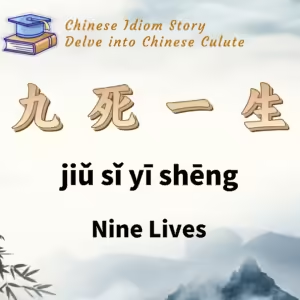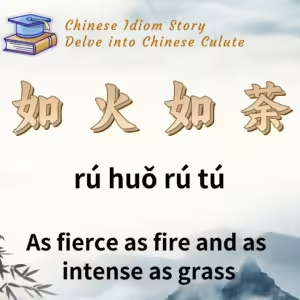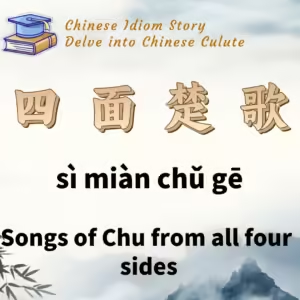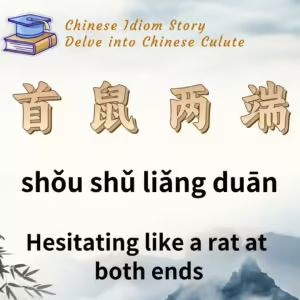
Chinese Idiom: 短兵相接 (Duan Bing Xiang Jie)
English Translation: Close-Quarter Combat
pīn yīn: duǎn bīng xiāng jiē
Idiom Meaning: This idiom describes intense and fierce fighting between two sides at close range; it can also metaphorically refer to a direct and heated debate on a particular issue.
Historical Source: From The National Mourning Song (《国殇》).
Idiom Story:
This idiom originates from a poem popular among the people of the Chu state, used to honor soldiers who sacrificed their lives for their country. It is the eighth poem in Qu Yuan’s Nine Songs (《九歌》), passionately praising the loyalty and bravery of those who died for their homeland. The poem consists of eighteen lines, with the first twelve lines depicting the grandeur of war and the valiant behavior of soldiers in battle, while the last six lines mourn the heroic sacrifices of the soldiers and praise the deceased.
The relevant lines are: “操吴戈兮被犀甲,车错毂兮短兵接。”
Translation: “With Wu spears in hand and clad in rhinoceros-hide armor, The chariots clash as close combat ensues.”
In this context:
- Wu spear (吴戈): An ancient weapon.
- Rhinoceros-hide armor (犀甲): Armor made from rhino skin.
- Chariots (车): Military vehicles.
- Hub (毂): The center of a wheel where spokes meet.
- Combat (短兵接): Close combat with short weapons.
The poem’s meaning describes how the battle ignites, with soldiers armed with Wu spears and wearing rhinoceros-hide armor, engaging in fierce close-quarters combat with their chariots clashing amidst the chaos. The countless flags obscure the sun, and the enemy appears as numerous as clouds in the sky. The soldiers exchange blows and arrows fiercely, refusing to yield to one another.
As the battle rages on, horses are wounded and the chariots sink into the ground, yet the soldiers continue to fight valiantly, illustrating their indomitable spirit. Even in death, their souls remain powerful and heroic figures in the afterlife.
From the lines “操吴戈兮被犀甲,车错毂兮短兵接,” the idiom “短兵相接” emerged, symbolizing intense and direct conflict.






